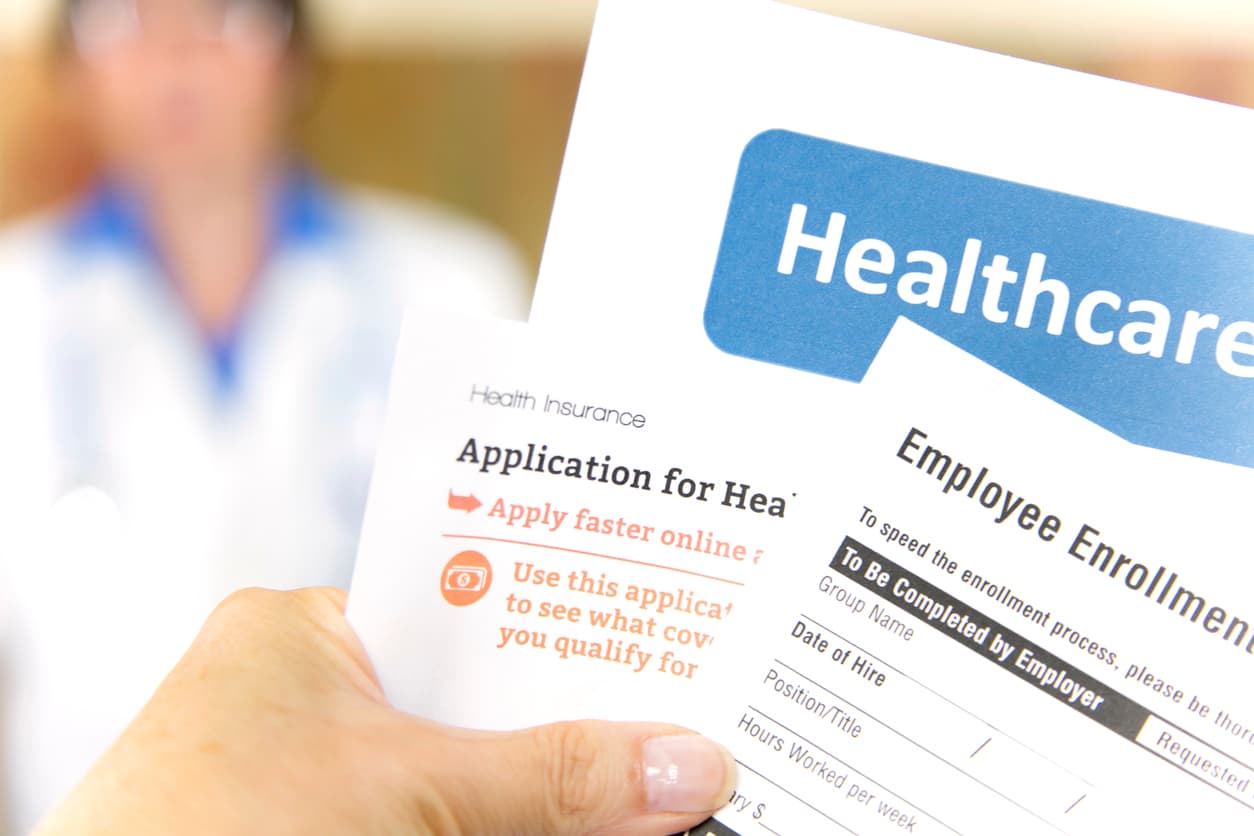Written by
Bretton Chatham
Bretton is an aPHR-certified member of the Marketing Team at Bernard Health. He writes about HR, compliance, and benefits solutions.
How Can Small Groups Overcome the Barriers to Self-Insurance?

Healthcare costs have been outpacing inflation for years, long before COVID exacerbated the situation. The pandemic has challenged the status quo on seemingly every front, and employer-sponsored insurance is no exception.
As renewal rates rise yet again, open enrollment is a great opportunity for small to mid-sized businesses to consider their employee benefits options, including self-insurance.
What is Self-Insurance? How Does It Compare to Fully-Funded Plans?
Self-insurance is an alternative financing option for group health plans and refers to a health insurance plan operated and funded by an employer—who also pays the claims—rather than an insurance company. The major differences between self-insured and fully-insured plans are in regards to who operates the plan and who pays the claims.
With self-funded insurance, the employer operates the plan and pays the claims, hiring a third-party administrator (TPA) to review those claims for accuracy and payment. Self-funded plans have fixed costs and variable costs. Variable costs refer to medical claims while fixed costs cover administering the plan, including stop-loss premiums or reinsurance coverage.
With fully-funded insurance, the insurance company operates the plan and pays the claims. Employers only have fixed costs with fully-insured plans.
Self-funded health plans are governed at the federal level under the Employee Retirement Income Security Act (ERISA) whereas fully-funded health plans are mostly regulated by states.
What are the Benefits of Self-Insurance?
The largest benefit of self-insurance is the savings potential for plan sponsors. Because employers pay the claims, they reap the benefit of low-claim years. Additionally there are also blended options, where employers can take on less risk and still benefit in low-claim years while minimizing risk in high-claim years.
Another benefit is the transparency of self-insurance, which gives employers more control over costs and gets them more value out of their group health plan. This transparency also allows them to audit claims, avoid expensive providers, and negotiate better rates to keep costs down.
A fully-funded health plan offers little transparency into how a sponsor’s money is being spent, making it difficult to cut costs.
So, why—according to the Kaiser Family Foundation— are only 23% of small business employees enrolled in self-funded plans (compared to 84% in large companies)?
5 Self-Insurance Barriers for Small Businesses (and How to Overcome Them)
Traditionally, self-insurance has only been an option for large employers, but each year, more and more small businesses are moving toward this alternative funding approach. Here are five barriers to self-insurance that small businesses have faced and how to overcome them:
1. My Company is Too Small:
Self-funding plans require working with stop-loss carriers and third-party administrators to manage the plan. Stop-loss or reinsurance coverage protects a self-insured employer from extremely high claims and may also include claims support, auditing services, and medical management.
Traditionally, these vendors would not work with groups below a certain threshold. But with changing dynamics in healthcare, new options are available for groups as small as 15 to 20 lives, which opens up a variety of new options for small employers. Ask your broker if they can recommend vendors for a group your size.
2. We Can’t Sustain a Bad Month of Claims:
Plan administrators recognize that most small and midsize employers would prefer a plan that is easier to budget. New plan structures minimize the risk of a high-claim month and make it easier for organizations to spread their costs over time.
3. My Employees Won't Fill Out Health Questionnaires:
One of the ways to underwrite a group for self-funding is to have employees complete health questionnaires. The administrative burden of having employees fill out health questionnaires can often be a deterrent for advisors and decision-makers alike.
However, using a modern health questionnaire solution makes this process much easier. It also allows brokers to better pursue every funding strategy available to a group.
4. We’ll Lose Our Insurance Network:
Many carriers with national networks—including Cigna and Aetna—are already available through self-insurance plans.
Each year, more carriers are recognizing the opportunities in working with small groups interested in self-insuring.
5. Our Broker Has No Experience with Self-Insurance:
Since self-funding has only been a viable option for large companies until recently, many brokers who specialize in working with small businesses have little experience with the intricacies of self-funded health insurance.
But as more small businesses explore self-funded health plans, more small-group brokers are developing strategies to familiarize themselves and their clients with this alternative financing option. Even if many of their clients are still hesitant to pursue it, both brokers and small-group employers benefit from learning more about self-insurance.
What Next?
Many small businesses may be intrigued by the cost-saving potential of self-funded health insurance but, understandably, feel it’s too risky to jump in all at once. There are still several options to mitigate risk along the spectrum from fully- to self-insured, including level-funded healthcare plans, reference-based pricing, and joining captives.
As employers grow increasingly frustrated with rising premiums, it’s likely the number of small businesses choosing to self-fund will continue to rise as well.
Written by
Bretton Chatham
Bretton is an aPHR-certified member of the Marketing Team at Bernard Health. He writes about HR, compliance, and benefits solutions.
Related Posts
FSAs and HSAs can get tricky within a family. While HR should never provide employees...
Yes, you can use a health savings account, or HSA, for cosmetic surgery, but only in...
If you work at an SMB without mental health support resources, you may feel limited in...
As an HR Party of One, you know that working doesn’t always feel like a party– especially...







Submit a Comment